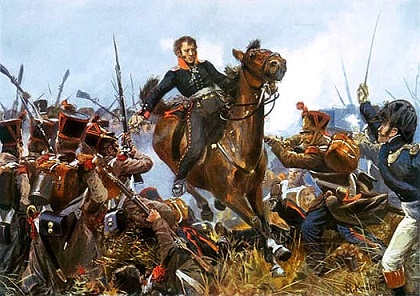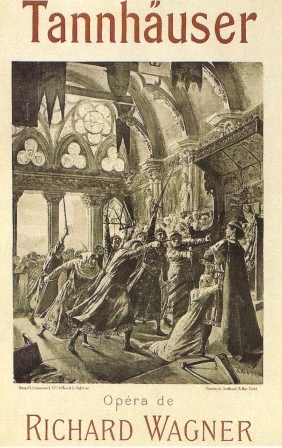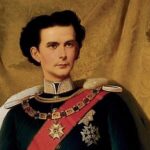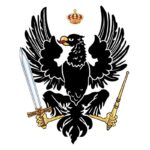October 19, 1813 At 2:00 A.M.
Napoleon begins his retreat from the Battle of Leipzig, which had started on October 16. At that battle Napoleon had about 185,000 troops and the allies against him (Austria, Prussia, Russia and Sweden had a total of about 320,000.) The Austrian army was commanded by General Karl Phillip Schwarzenberg and the Prussian army by General Gebhard Blücher.
October 19, 1845
First Performance of Richard Wagner‘s Tannhäuser in Dresden.
Tannhäuser is an 1845 opera in three acts, music and text by Richard Wagner, based on two German legends: Tannhäuser, the legendary medieval German Minnesänger and poet, and the tale of the Wartburg Song Contest. The story centers on the struggle between sacred and profane love, and redemption through love, a theme running through much of Wagner’s mature work.
Wagner made a number of revisions of the opera throughout his life and was still unsatisfied with its format when he died. The most significant revision was made for the opera’s premiere in Paris in 1861; the production there was however a failure, partly for political reasons.
The opera remains a staple of major opera house repertoire in the 21st century.
October 19, 1951
U.S. president Harry Truman signs a formal end to the state of war with Germany.









